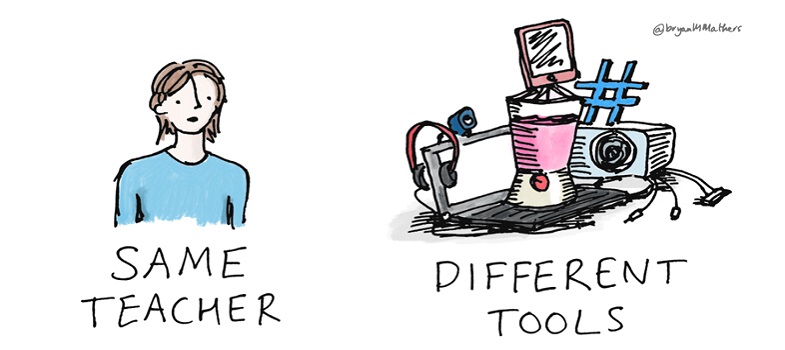1.4 Motivation, support and discipline
Keeping learners motivated and attentive online can be much more challenging than in a face-to-face environment where your personal enthusiasm for the subject can readily rub off on the learners. In an online environment, you will likely have learners who are more self-motivated, learners who are more comfortable with online learning, and learners who are less certain of how to interact in an online learning environment. There might be particular challenges for those learners who are less capable of structuring their studies independently or lack digital skills.
To keep learners motivated and confident it is worth providing a highly structured set of tasks in the opening stages of the course, with discrete outputs, which enable you to see very quickly which learners are completing the tasks on schedule and in the manner that you desire. You can then follow up individually with those who are not engaging in the expected manner and offer advice on how they should approach the tasks and their online learning experience.
On the other hand, maintaining control of a class online can be more straightforward than doing so face-to-face. In the face-to-face classroom, individual learners can disrupt the lesson or distract other learners, but the online environment is different. During synchronous events, you can combine existing classroom skills with the features of the environment (such as the teacher controlling whose microphone and screen sharing is enabled at any given time) to avoid any one learner dominating discussions. In asynchronous discussions, inappropriate or tangential comments can be moderated or, if appropriate, challenged publicly, as with a face-to-face teaching setting.
A further difference with respect to discipline in the online learning environment is the possibility for interactions outside of the channels that you are present in. We will talk about the concept of ‘backchannels’ later in this week. When teaching online, educators need to always be aware that interactions may be occurring between learners in places that are out of your reach, and the possibility for misbehaviour or conflicts between students. Bullying, for example, needs to be borne in mind. If a learner is unusually reticent in an online session, or doesn’t post to a discussion thread which you would have expected them to engage in, it can be worth tactfully exploring with the learner (in private, of course) to ascertain what has caused the change in their interaction/behaviour online.
1.3 Interacting with students

